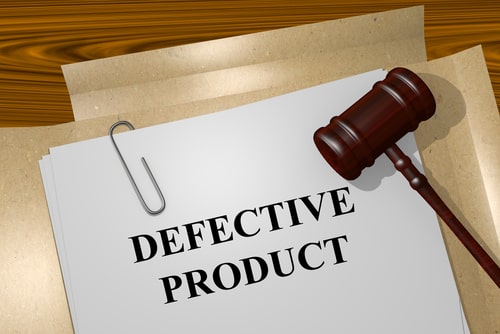Several years ago, our firm won a major product liability case in which a lawnmower exploded and killed the man riding it. Because the fire had completely eviscerated the lawnmower—there was no plastic left at all—Attorney Rick Shapiro had to find examples of the same mower to thoroughly investigate the case. He even purchased parts for the mower on eBay.
The mower and parts were transported to an expert in fire analysis, who was able to determine why the fuel line separated from the fuel tank. The jury awarded the victim’s family $2.5 million.
If you’ve been injured by a dangerous or defective product, the legal team at Shapiro, Washburn & Sharp can evaluate your case to determine what legal recourse you may have. We can assess your claim and guide you through the legal process to ensure you receive the compensation you deserve. Call us today at 833-997-1774 for a free consultation.
How Does a Personal Injury Lawyer Investigate a Defective Product Injury Case?
When investigating a defective product injury case, a personal injury lawyer begins by gathering as much evidence as possible about the incident. This involves reviewing the client’s version of events to understand how the injury occurred and the role the product played in it. The lawyer will ask the client to provide details about the product, including where and when it was purchased, how it was used, and the specific defect that caused the injury.
Next, the lawyer will examine the defective product itself, if available. This may involve sending the product to an expert for analysis to determine how the defect contributed to the injury. Experts, such as engineers or safety specialists, can often pinpoint design flaws, manufacturing errors, or improper labeling that could make the product dangerous. If the product is no longer in the client’s possession, the lawyer may seek out other instances of similar defects, looking for patterns of complaints or previous injury reports.
The lawyer also investigates the company’s manufacturing and marketing practices. This can include reviewing the manufacturer’s design processes and quality control protocols and determining whether the company complied with relevant safety standards and regulations. The lawyer will also look into whether the product was recalled and, if so, whether the manufacturer took appropriate steps to notify consumers.
What Role Do Expert Witnesses Play in a Defective Product Injury Case?
Expert witnesses play a critical role in investigating and preparing a defective product injury case. In these types of cases, the client’s personal injury lawyer typically hires experts who specialize in areas related to the product’s design, manufacturing, or functionality. These experts help explain complex technical issues central to the case and provide professional opinions to strengthen the client’s argument.
For example, engineers might be used to determine whether the product’s design was inherently unsafe or if it failed to meet safety standards. If a manufacturing defect caused the injury, experts can assess whether the defect occurred during production or due to substandard materials. Safety experts can also examine the product’s instructions, warnings, and labeling to see if there was a failure to inform users of potential hazards adequately.
Medical experts may also be called upon to evaluate the nature and extent of the injury caused by the defective product. They can testify about the severity of the injury and how it affects the client’s daily life, which is particularly useful when arguing for appropriate compensation for pain and suffering or long-term medical care.
How Does a Personal Injury Lawyer Build a Case Against the Manufacturer of a Defective Product?
Building a case against the manufacturer of a defective product requires the lawyer to establish that the manufacturer was responsible for the defect and that the defect directly caused the injury. They begin by gathering detailed documentation about the product, including its design, manufacturing process, and any warnings or instructions provided to the consumer. This may involve reviewing internal company records, such as safety tests, quality control reports, and any correspondence regarding the product’s design or production issues.
The lawyer also examines whether the product complies with safety regulations and industry standards. In many cases, manufacturers are required to adhere to specific safety guidelines, and failing to do so can establish negligence. If the product is found to be defectively designed, manufactured, or inadequately warned about potential risks, the manufacturer may be held liable for any resulting injuries.
A key part of building the case is identifying the defect that led to the injury. The lawyer will work with experts to determine whether the product was defectively designed or manufactured or failed to warn consumers about potential hazards. For instance, the manufacturer may be liable for insufficient warnings if the product was meant for home use but lacked proper safety instructions.
In some cases, the lawyer may investigate whether other incidents have involved the same product or similar products. A pattern of complaints or lawsuits can help demonstrate that the manufacturer knew or should have known about the defect but failed to take corrective action.
What Should I Do If I’ve Been Injured By a Defective Product?
If you suffer an injury due to a defective product, it is essential to act quickly, gather as much evidence as possible, and consult with a qualified defective product injury attorney to navigate the complexities of your claim effectively. Remember, the goal is to prove the defectiveness of the product and its link to your injuries, which can often be accomplished even without a receipt.
At Shapiro, Washburn & Sharp, we have decades of experience handling personal injury claims involving dangerous and defective products. We understand how to navigate the legal process and work with you to maximize the value of your case. Call us at 833-997-1774 to schedule a free consultation, and let us help you get the compensation you deserve.
